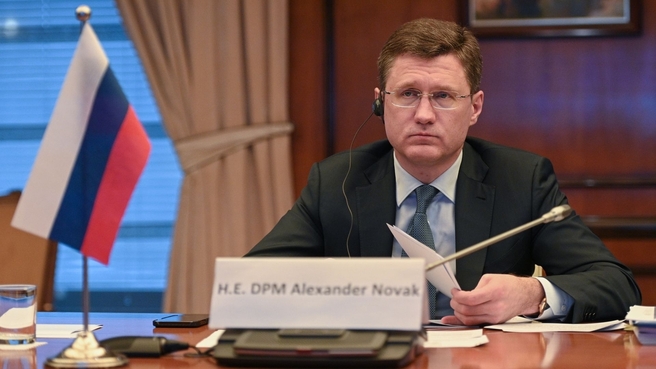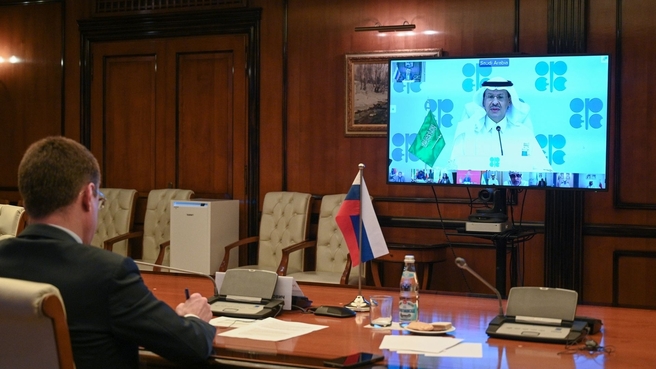Following consultations via videoconference, the OPEC+ countries decided to gradually increase oil production from May to July to achieve the proper balance between supply and demand in the near future.
After consultations via videoconference, Deputy Prime Minister Alexander Novak said the participants discussed the current condition of the global oil market, the fulfilment of the OPEC+ March recommendations and new recommendations on joint actions starting in May 2021.
“The most important decision was to start the general recovery of oil production on May 1 by the OPEC+ countries over three months. Thus, in May the overall increase will be about 350,000 barrels per day; in June it will be the same, and in July it will be 441,000 barrels per day. The countries will follow the common schedule from the April 2020 agreement. In addition, Saudi Arabia, that earlier took on special reduction commitments, decided to increase its output additionally,” reported the Deputy Prime Minister.
Russia will follow the general trend towards increasing oil output. “In the past few months we made some decisions that allowed us to partially restore our production based on our quota. We were left with 114,000 barrels per day, and together with the other countries we are using this time to restore our production,” he said.
Mr Novak noted that during the deal, the OPEC+ countries managed to largely engineer a decrease in global reserves, in part, by fulfilling the given recommendations in good faith.
“Today, the market surpluses dropped to 50 million barrels per day. In the next two or three months, the remainders will match the norm and correspond to the five-year average. That said, we expect the demand for oil to grow by 5-5.5 million barrels per day. For the first time, we have reached the highest performance level –113 percent in February. Those that did not reduce their output in due time, will have to do so until September, in addition to fulfilling new quotas,” noted Mr Novak.
The production buildup is topical for the Russian domestic market. Mr Novak said the demand for oil products in Russia exceeds pre-COVID levels, and the mobility of the population remains high. “We must keep up with the times and prevent a market rebalancing,” he warned.
The participants also discussed the need to expand cooperation on the green agenda, and emphasised the importance of addressing global climate change and the prospects for renewable energy sources.
“We support this process. Russia is also focusing on green energy and this subject. Crown Prince of Saudi Arabia Mohammed bin Salman and President of Russia Vladimir Putin talked about these issues today,” noted Mr Novak.










